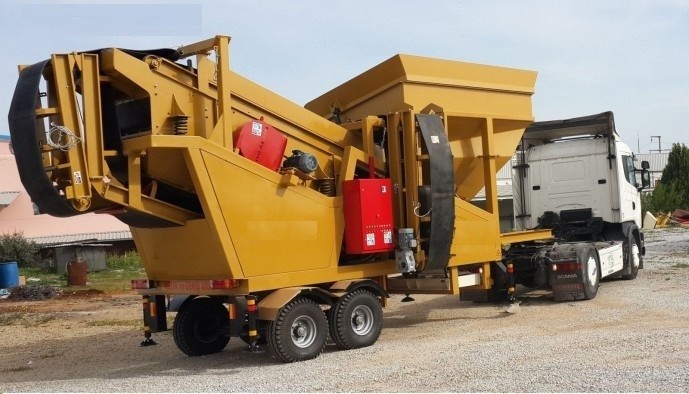The exponential growth in global construction and demolition activities has led to a massive increase in rubble and solid waste. Traditional waste disposal methods are proving to be unsustainable in terms of cost, logistics, and environmental impact. In response to this, advanced mobile crushing and screening plants are revolutionizing the construction industry by offering on-site recycling solutions.
Evolution of Mobile Technology
Unlike traditional stationary plants that require significant capital investment and long installation times, next-gen mobile systems are engineered for flexibility, automation, and ecological responsibility.
Key innovations include:
-
Remote monitoring and control via integrated PLC and SCADA systems
-
Electric or hybrid drive options to reduce emissions and fuel consumption
-
High-efficiency screens for precise material sorting
-
Dust and noise suppression systems for urban and regulated environments
Manufacturing Process
The production of a mobile crushing plant is a complex, multi-disciplinary engineering effort:
-
Design Phase: Engineers determine capacity, output sizes, mobility needs, and operating conditions. CAD/CAM software is used to model components.
-
Component Manufacturing: Crushers, screens, conveyors, and chassis are manufactured in specialized factories using heavy-duty steel.
-
Assembly: The plant is partially assembled in the factory and finalized on-site.
-
Commissioning: System is tested for throughput, safety, and automation.
-
Training & Handover: End-users are trained on system operation and maintenance.
Environmental Benefits
Mobile crushing and screening plants play a key role in reducing the carbon footprint of construction activities. By processing rubble on-site:
-
Transport emissions are minimized
-
Virgin material extraction is reduced
-
Recycling rates increase significantly
Some systems now boast up to 80% material recovery, contributing significantly to green building certifications and circular economy initiatives.
Economic Impact
-
Savings of up to 60% on waste transport and disposal
-
Lower procurement cost for recycled aggregates
-
Shorter project timelines = reduced operational costs
-
ROI (Return on Investment) typically within 12–24 months
Conclusion
Next-generation mobile crushing and screening plants are transforming construction sites into self-sufficient, sustainable production zones. With modularity, automation, and low environmental impact, these systems are ideal for modern construction, roadworks, and mining projects where mobility and speed are critical.
 English
English
 Le français
Le français
 Türkçe
Türkçe

